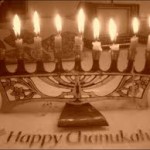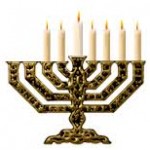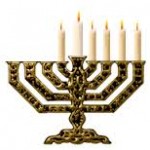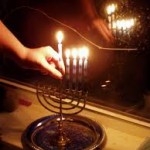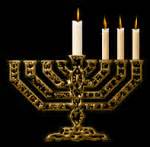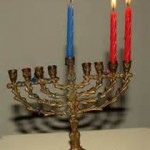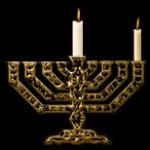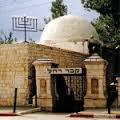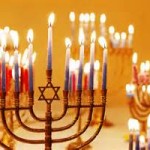 Hanukkah begins next Tuesday. We’ll light the first candle when it’s dark, anticipating the light that will grow each additional day. We’ll set the hanukkiah in the window, watch the tiny flames reflect across the ledge, out into the dark world, and back towards the cozy warmth of our homes.
Hanukkah begins next Tuesday. We’ll light the first candle when it’s dark, anticipating the light that will grow each additional day. We’ll set the hanukkiah in the window, watch the tiny flames reflect across the ledge, out into the dark world, and back towards the cozy warmth of our homes.
We do have prayers we say when we kindle the lights of the hanukkiah, of course. But our modern celebration is mostly around eating food that is extremely tasty (though marginally healthy…), playing the dreidel game with the younger set, and giving presents.
It’s also a perfect time for storytelling, and the one we tell is worthy of a showy Hollywood venue. An autocratic ruler. An unjust persecution. A band of brave resisters who, against all odds, win the day. A tale of oppression transformed, a subject people regaining hope and freedom.
It is a story of courage in the face of cruelty. And miracles, too, of course. God’s eternal light, with only a day’s worth of oil to keep it burning, lasts for eight, until new oil can be found.
Stories can be told in so many ways. Even one word can contain many meanings. Consider the following:
חנה to settle oneself, to rest: Body, making, settling the candles in the Hanukkiah
חֲנֻכָּה dedication, consecration: Heart, forming. Recite the blessings, light the candles.
חנך to learn, to make experienced: Mind, knowing. What do you see, recall, know, experience in the flickering of the flames?
חֵן grace: Emanation, being. What is the revelation to be found in the light of the candles?
This year, consider trying out a new Hanukkah tradition. Light candles, settle down with family and friends, and ask: What do each of the words embedded in Hanukkah mean to us?
Consider what they ask us to do: Rest, dedicate ourselves anew, learn, give and receive grace. All beautiful, all worthy of our time and effort.
Shabbat Shalom and Chag Sameach!
Rabbi Barbara
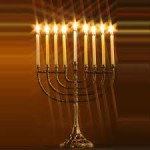 There was oil for one day. Why do we observe eight days of Hanukah when the burning was, for one day, no miracle at all?
There was oil for one day. Why do we observe eight days of Hanukah when the burning was, for one day, no miracle at all?
